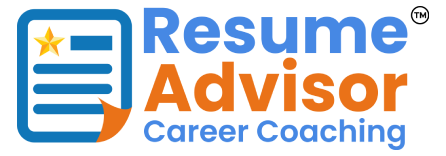
In today’s competitive job market, a coaching resume isn’t just a list of your experiences—it’s your personal brand on paper. Whether you’re an athletic coach, executive coach, life coach, or academic mentor, your resume needs to demonstrate your expertise, leadership, and results.
Employers and clients want proof that you can inspire, motivate, and guide others toward success. That means your resume must be more than just a career timeline—it should clearly showcase your ability to transform individuals and teams.
If you want to ensure your resume is compelling, strategic, and tailored to your audience, working with a career coaching firm like Resume Advisor can make all the difference. Founder Jonathan works one-on-one with clients to deliver personalized coaching, resume development, and job search strategies designed for professionals across all industries and career levels.
Why a Coaching Resume Needs to Be Different
While many resumes follow a standard format, a coaching resume must do two things well:
- Highlight measurable impact – Coaching is about results. Numbers, percentages, and clear improvements show your value.
- Showcase leadership and communication skills – Coaching involves influencing behavior; which employers want to see in action.
A well-crafted resume should communicate not only your qualifications but also your coaching philosophy, methods, and successes.
According to Indeed Career Guide, recruiters spend just seconds scanning a resume—meaning your most impactful achievements need to stand out instantly.
Essential Sections in a Coaching Resume
Whether you’re writing your own or working with a professional like Resume Advisor, here’s what every effective coaching resume should include:
1. Contact Information
Your name, phone number, email, and LinkedIn profile should be at the top. If you’ve completed LinkedIn optimization with Resume Advisor, this is a chance to make your profile and resume work seamlessly together.
2. Professional Summary
A 3–4 sentence overview summarizing your coaching style, key accomplishments, and unique strengths. For example:
"Transformational leadership coach with 8+ years of experience guiding executives and teams to exceed performance goals through customized strategies and data-driven insights."
3. Key Skills
Include both technical skills (e.g., performance analysis, training program design) and soft skills (e.g., motivational communication, conflict resolution).
4. Professional Experience
Highlight achievements, not just duties. Use bullet points that start with strong action verbs and quantify results.
Example:
- Coached 15 executive leaders, resulting in an average 30% increase in productivity within six months.
5. Education & Certifications
List your degrees, relevant certifications, and training programs.
6. Achievements & Awards
If you’ve received recognition, this is your space to show it off.
Common Mistakes to Avoid
Even skilled professionals make mistakes when writing their coaching resume. Avoid these pitfalls:
- Listing duties instead of achievements – “Responsible for team training” is weaker than “Led training that improved win rates by 25%.”
- Using generic language – Be specific and tailor your words to your audience.
- Forgetting keywords – Job descriptions often contain the exact terms hiring managers search for.
Career coaching experts at Resume Advisor can help identify and integrate these keywords effectively, ensuring your coaching resume passes applicant tracking systems (ATS).
How to Make Your Resume Stand Out?
1. Lead with Impact
Place your most impressive achievements at the top of each section. Recruiters scan quickly, so make your wins impossible to miss.
2. Customize for Each Role
A one-size-fits-all approach doesn’t work. Tailor your coaching resume for the specific position, whether it’s a corporate training role or athletic coaching position.
3. Use Industry Language
Using the right terminology shows that you understand your field and can communicate with peers and clients effectively.
4. Showcase Your Coaching Philosophy
Employers want to know how you approach development and improvement. A brief statement about your philosophy can make your resume more personal.
How Resume Advisor Elevates Your Coaching Resume
A strong coaching resume requires more than just good writing—it requires a deep understanding of how to position your skills for your target audience. That’s exactly what Resume Advisor delivers.
Jonathan works directly with clients to:
- Highlight measurable impact in every bullet point
- Craft compelling professional summaries that grab attention
- Ensure ATS compatibility with keyword-rich formatting
- Align resume content with LinkedIn profiles for a cohesive professional brand
By working with Resume Advisor, you gain more than a polished coaching resume—you gain a career strategy tailored to your goals.
Sample Coaching Resume Achievements
Here are examples you can adapt for your own resume:
- Developed and implemented a leadership program resulting in a 40% increase in team retention.
- Guided underperforming sales staff to exceed quarterly targets through targeted coaching sessions.
- Designed a training module that improved client satisfaction scores by 22%.
If you need help identifying these kinds of metrics in your own career, Resume Advisor can guide you through the process.
ATS Optimization for Resumes
Most companies use applicant tracking systems to filter candidates before a human sees their resume. To get past this digital gatekeeper:
- Include relevant job-specific keywords.
- Avoid overusing graphics or unconventional formatting.
- Use standard section headings like “Professional Experience” and “Education.”
Resume Advisor ensures every coaching resume is ATS-friendly without sacrificing style or clarity.
Extra Tips for a Winning Coaching Resume
- Keep it concise – Ideally, 1–2 pages.
- Use strong action verbs – “Directed,” “Transformed,” “Implemented.”
- Show progression – Demonstrate career growth over time.
- Add a touch of personality – A coaching resume should reflect both your skill and your style.
For further tips, check out resources like The Balance Careers for resume writing best practices.
Final Thoughts
Your coaching resume is your ticket to more interviews and better career opportunities. It’s not just about listing what you’ve done—it’s about proving the results you’ve delivered. By partnering with Resume Advisor, you can ensure your resume tells a compelling story of success and impact, tailored to your career goals.
Whether you’re an experienced coach or just starting your career, a strategic, well-crafted coaching resume can open the door to exciting opportunities.

